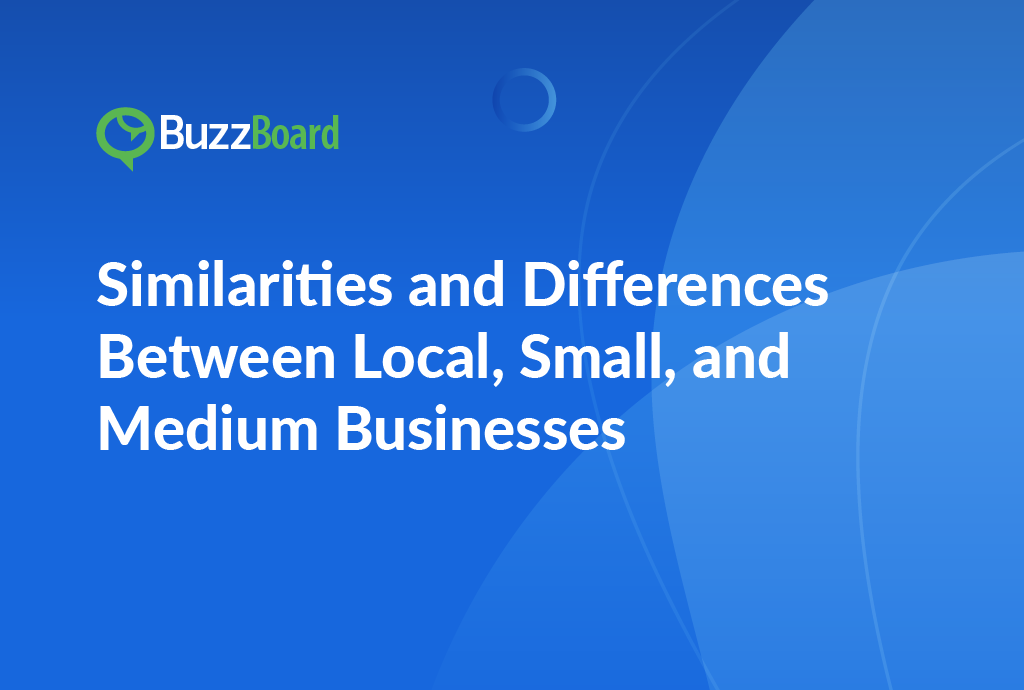Similarities and Differences Between Local, Small and Medium (or mid-sized) Businesses
When you are in the dynamic realm of digital sales and marketing, understanding the nuances between different types of businesses is essential. This is because you need to tailor your approach effectively to suit the needs of your client companies in the best possible way. As you navigate the landscape of selling digital marketing products and services, recognizing the distinctions between local businesses, small businesses, and medium or mid-sized businesses can be the key to successful outreach and partnership.Defining Business Size: Revenue vs. Employee Count
For categorizing businesses, authorities often use either revenue or employee count as the defining metric. The definitions can vary, leading to different classifications based on the criteria applied. 1. Small Businesses- By Revenue: The United States Small Business Administration (SBA) typically classifies businesses with annual revenues of $7.5 million or less as small businesses.
- By Employee Count: Small businesses, according to the SBA, may have up to 500 employees, varying by industry.
- No Universal Definition: The term ‘local business’ doesn’t have a standard size classification. Local businesses are often characterized by their physical presence within a specific community or region, serving local customers.
- By Revenue: The middle market, or medium-sized businesses, often fall within a revenue range of $10 million to $1 billion. This can vary depending on the source.
- By Employee Count: The number of employees in medium-sized businesses may range from a few hundred to a few thousand.
Fundamental Traits of Local, Small, Medium-sized Businesses
1. Local Businesses- Characteristics: Local businesses are deeply rooted in a specific community, often serving a local customer base. They may include brick-and-mortar establishments, service providers, and more.
- Outreach Strategy: Personalized, community-focused strategies resonate well with local businesses. Highlighting the impact on the community can be a compelling selling point.
- Characteristics: Small businesses, whether local or not, are typically characterized by their manageable size, often with fewer resources and a focus on niche markets.
- Outreach Strategy: Small businesses value personalized solutions that address their specific challenges. Demonstrating how your digital marketing offerings cater to their unique needs is crucial.
- Characteristics: Medium-sized businesses bridge the gap between small enterprises and larger corporations and have established themselves as significant players within their industries, with more substantial resources and a broader market reach. They may have more extensive resources and a broader market presence.
- Outreach Strategy: Medium businesses often seek scalable solutions that can adapt to their growth. Demonstrating the scalability and flexibility of your digital marketing services is key.
Sources of Information on Business Sizes
For those interested in gaining deeper insights into the middle market, one valuable source of information is the National Center for the Middle Market, led by Thomas A. Stewart. The center provides comprehensive research and resources related to mid-sized businesses, aiding sales professionals in understanding the specific needs and characteristics of this market segment (National Center for the Middle Market). Additionally, the United States Small Business Administration (SBA) serves as a comprehensive resource for small business owners, offering support in planning, launching, operating, and growing their businesses (U.S. Small Business Administration).Tailoring Your Approach: Selling to Small, Local, Medium, and Mid-sized Businesses
Salespeople engaged in selling digital marketing products and services must tailor their approaches based on the unique characteristics of the businesses they target. Here are some key considerations: 1. Local and Small Businesses- Personalized Solutions: Emphasize the personalized and community-focused aspects of your digital marketing offerings.
- Cost-Effective Solutions: Highlight solutions that deliver impact without stretching limited budgets.
- Scalable Solutions: Showcase the scalability and adaptability of your digital marketing services to accommodate growth.
- Strategic Partnerships: Emphasize the role your agency can play as a strategic partner in achieving their business objectives.
So, in digital marketing sales, understanding the distinctions between local businesses, small businesses, medium or mid-sized businesses is crucial. Tailoring your approach based on the unique characteristics and needs of each segment will not only enhance your outreach efforts but also contribute to long-term, successful partnerships. Stay informed, stay adaptable, and watch your digital marketing sales efforts thrive in diverse business environments.
Additional Resources
How many SMBS are there in the United States?
You already voted!








